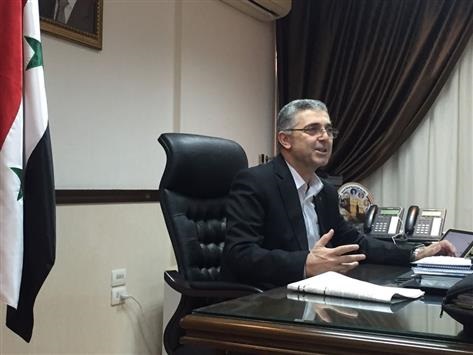Minister of National Reconciliation has underscored that Syrian state will never allow the transformation of Idlib province to a ‘canton’ for radical movements rejecting settlements, indicating that the great national reconciliation in Syria necessitates the end of war and a clear political process.
Ali Haidar told the Lebanese Assafir newspaper – in an interview published Monday-that Syrian state’s policy is not based on sending all gunmen to Idlib, which became a center for extremist radical groups rejecting reconciliation.
“These groups are part of groups that are fighting in Aleppo and they reject truce. This matter will be addressed at level of the countries that intervene in Syria’s internal affairs and seek to have tools on the ground. These countries are Turkey, Qatar, Saudi Arabia, America, France and Britain,” he added.
The minister unveiled that there is an experience under way where the gunmen want to move to Daraa province, south of Syria. “Military speaking, the convey of gunmen to Daraa province has no effect on Syrian army.. The number of gunmen being conveyed to Idlib province is nothing compared to the number of gunmen, who enter to the country through the open borders.”
Gunmen are been conveyed to other areas after reaching reconciliation deals.
75 reconciliation deals, 910 truces
“About 910 towns in Syria have signed truce deals with armed groups while the number of reconciliation deals in the country is 75,” Mr. Haidar said.
He clarified: “The truce deals signed between Syrian army and armed groups or local committees are being observed by center in Hmeimim airbase and they are not reconciliation deals because reconciliation means firm stability.”
The minister referred to Russia’s cooperation in reconciliation deals reached in Homs and Hama provinces, adding that there is an office for Hmeimim center’s representative in Ministry of Reconciliation.
“Now, we are studying how to invest Russian humanitarian aid in reconciliation… Actually, there is good cooperation between the ministry and the center and we benefit from their capabilities,” Mr. Haidar said.
Three main factors
He affirmed that Syrian army’s advance, existence of civilians and gunmen’s subjection to external powers in restive areas are the main factors that define which area must come first in reconciliation.
“As for Doma area in Damascus countryside, there are talks about reconciliation deal there but it too early to reach it as ‘Jaish al-Islam’, which exists in the area, is affiliated to Saudi Arabia. But we are communicating with some powers and civil community which can practice popular pressure to accelerate the reconciliation,” the minister asserted.
He concludes by saying that political process between Syrians should not be carried out under fighting pressure.
Basma Qaddour

